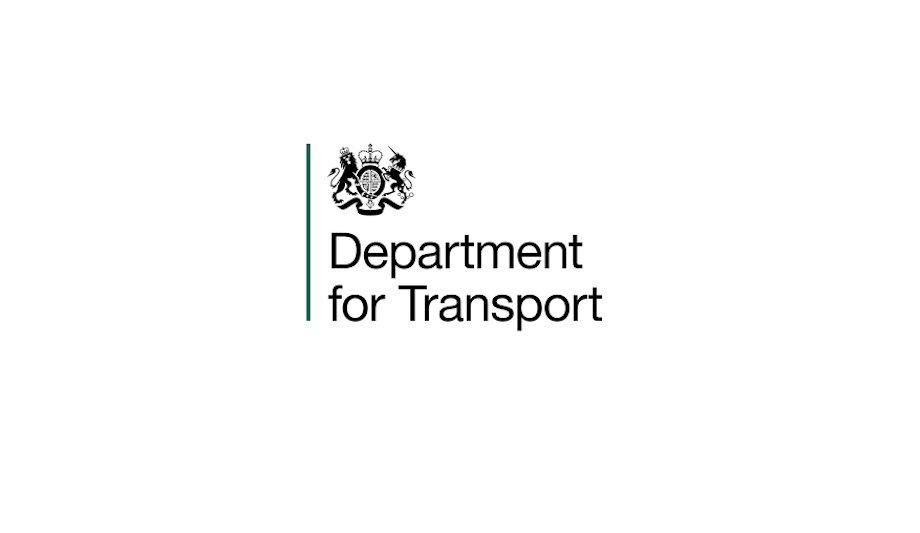Fuels of the future and shipping charge points in harbours are at the centre of a major new strategy to make Britain’s shipping fleet net zero by 2050 and drive growth in coastal communities.
The Maritime Minister has revealed the Government’s new goals for all vessels that operate in UK waters and dock at UK ports to be carbon-free and help vessel owners, operators and scientists make emission-free voyages a reality.
Maritime Decarbonisation Strategy
Maritime Decarbonisation Strategy sets out goals to reduce greenhouse gas emissions by 30% by 2030
Part of the Government’s Plan for Change to propel the UK towards becoming a green energy superpower and drive growth, the new Maritime Decarbonisation Strategy sets out goals to reduce greenhouse gas emissions by 30% by 2030, 80% by 2040 and to zero by 2050.
This will see the UK match the highest level of the ambitious goals agreed at the International Maritime Organization in their 2023 Strategy on Reduction of Greenhouse Gas Emission from Ships.
Investment in green technologies
Investment in green technologies and fuels will cement the UK as a clean energy superpower and encourage a green economic revival at the local level, helping to build high-skilled jobs in coastal communities, delivering a local boon to cities and towns.
Under the new strategy, the shipping sector will be brought under the UK Emissions Trading Scheme (UK ETS). This will see operators of larger vessels such as tankers and cruises – which cause the most pollution - pay more for their greenhouse gas emissions.
New green shipping technologies
The strategy sets out plans to reduce emissions from shipping and raise the use of clean fuels
Furthermore, the strategy sets out plans to reduce emissions from shipping and increase the use of clean fuels and technologies, such as hydrogen, electric or ammonia vessels. Later, the Minister will launch the new strategy in Portsmouth with vessel chargeport pioneer ABB and demonstrate how these new green shipping technologies will bring in private investment, create thousands more jobs, and revitalise coastal communities.
Such investment has already seen growth in coastal regions, with the £206m of UK Shore funding having already supported over 300 organisations across every nation and region in the UK, and secured over £100 million of private investment, helping to kickstart economic growth.
Climate change
Maritime Minister Mike Kane said: “Climate change is one of the greatest challenges we face today. Working together with industry and international partners, we are driving down emissions in every corner of the economy."
“As part of our Plan for Change, we’re committed to making the UK a green energy superpower, and our Maritime Decarbonisation Strategy will help us build a cleaner, more resilient maritime nation.”
Net zero with ambitious targets
The government has launched two calls for proof to help inform the growth of measures
In addition, the Government is also launching two calls for evidence now to help inform the development of measures needed to reduce emissions at berth, understand the future energy demand at ports and decarbonise smaller vessels.
Richard Ballantyne OBE, Chief Executive of the British Ports Association, said: “We welcome today's announcement. UK ports are already demonstrating their commitment to net zero with ambitious targets and investment in new technologies and fuels."
Investment and decarbonisation for vessels
Ballantyne added: "The UK SHORE programme shows what can be achieved when government and industry work together on shared goals."
"We will continue to work closely with the Department for Transport on lowering barriers to investment and decarbonisation for both ports and vessels and this strategy will help set a clear direction and expectations well into the future. We look forward to a continued close partnership built on common aims.”
Challenge and opportunity for the maritime sector
Chris Shirling-Rooke, Chief Executive of Maritime UK, said: “Decarbonisation is both an enormous challenge and opportunity for the maritime sector, with huge potential for growth, jobs and innovation in our coastal communities, and across the whole of the United Kingdom."
"It is vital that our country continues to drive change and chase growth by creating a cleaner and more sustainable future. We welcome the Government’s commitment today and look forward to continuing to work with them on the Maritime Decarbonisation Strategy.”
Zero emissions vessels and infrastructure
Mike Sellers, Director of Portsmouth International Port, said: “We welcome the announcement of the new Maritime Decarbonisation Strategy, which the port’s masterplan very much aligns with. To help achieve this ambition, we’re on track to become the UK’s first multi-berth, multi-ship ‘chargeport’ by providing renewable plug-in energy when ships are alongside from Spring 2025."
"The Seachange shore power project, demonstrates the success of both public and private investment, supported by the government’s zero emissions vessels and infrastructure (ZEVI) fund, driving innovation towards net zero. We’re pleased to show the minister what’s happening in Portsmouth and how this could be a model for ports across the country.”
Net zero emissions by 2050
Rhett Hatcher, CEO of the UK Chamber of Shipping, said: “The UK Chamber is proud to have led the way on decarbonisation, publicly calling for the global shipping industry to reach net zero emissions by 2050, prior to the UK Government and IMO Commitments."
"Across our sector, we have already invested in new technologies and pioneering innovations to meet our commitments and are pioneering the drive towards net zero. We therefore welcome the Government’s publication of the Maritime Decarbonisation Strategy, as a much-needed successor to the 2019 Clean Maritime Plan."
Green transition for UK maritime
Hatcher added: “The Government’s strategy must now be matched by delivering the regulatory framework, technology and infrastructure, including a shore power revolution, required to support the green transition for UK maritime, bringing benefits to maritime communities and the UK economy."
"We look forward to working collaboratively alongside the government to progress this important agenda and reach our shared goals of a cleaner, more resilient maritime sector in the UK.”
Reduce emissions from global shipping
Anna Krajinska, UK Director at Transport & Environment (T&E), said: "T&E welcomes the government's commitment to reduce shipping emissions by 30% by 2030, 80% by 2040 and net zero by 2050. It is crucial that ambitious targets are coupled with robust policy measures to slash the UK’s domestic and international shipping emissions without delay."
With global shipping accounting for 2% of all emissions, the UK will push for high ambitions at the UN’s next meeting of the International Maritime Organization (IMO) in April, as it develops important measures to reduce emissions from global shipping.














